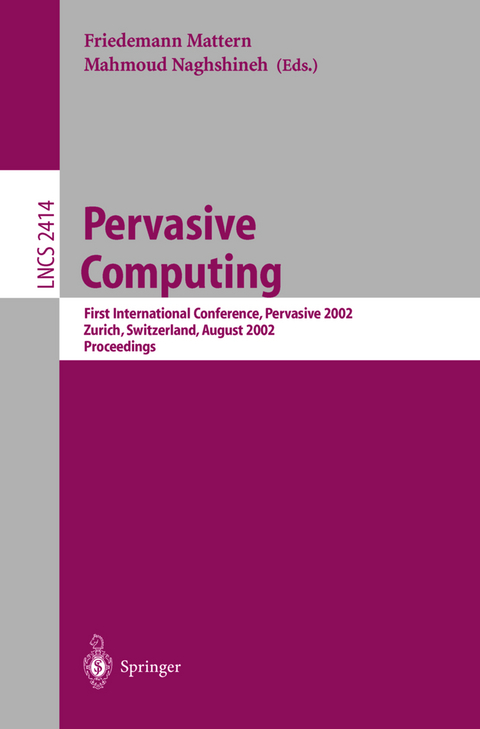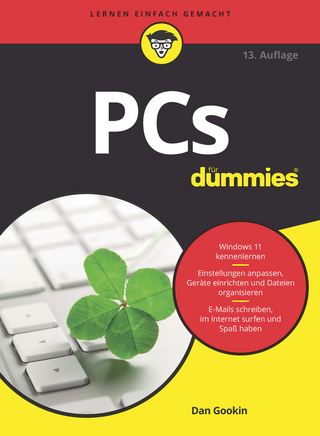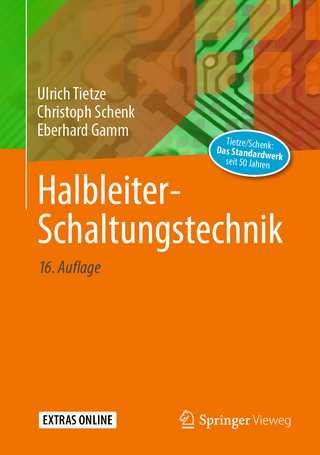
Pervasive Computing
Springer Berlin (Verlag)
978-3-540-44060-4 (ISBN)
Friedemann Mattern ist seit 1999 an der ETH Zürich als Leiter des Fachgebiets Verteilte Systeme" tätig; im Oktober 2002 gründete er dort das Institut für Pervasive Computing. Mattern studierte Informatik in Bonn und promovierte an der Universität Kaiserslautern. Zwischen 1991 und 1999 hatte er Professuren an der Universität des Saarlandes und an der Technischen Universität Darmstadt inne. Er ist an mehreren Industriekooperationen und Forschungsprojekten zum Thema Ubiquitous und Pervasive Computing beteiligt und ist Mitbegründer des von der ETH Zürich und der Universität St. Gallen gemeinsam getragenen M-Lab-Kompetenzzentrums, das die betriebswirtschaftlichen Auswirkungen des Ubiquitous Computing erforscht.
Invited Talks.- The SAHARA Model for Service Composition across Multiple Providers.- Ubiquitous Computing in the Automotive Domain (Abstract).- System Design.- Building Applications for Ubiquitous Computing Environments.- Systems Support for Ubiquitous Computing: A Case Study of Two Implementations of Labscape.- On the Gap between Vision and Feasibility.- Applications.- The Fastap Keypad and Pervasive Computing.- Going Back to School: Putting a Pervasive Environment into the Real World.- Pervasive Web Access via Public Communication Walls.- Identification and Authentication.- Efficient Object Identification with Passive RFID Tags.- The Untrusted Computer Problem and Camera-Based Authentication.- Models, Platforms, and Architectures.- SoapBox: A Platform for Ubiquitous Computing Research and Applications.- Pushpin Computing System Overview: A Platform for Distributed, Embedded, Ubiquitous Sensor Networks.- Making Sensor Networks Practical with Robots.- Modeling Context Information in Pervasive Computing Systems.- A Model for Software Configuration in Ubiquitous Computing Environments.- INS/Twine: A Scalable Peer-to-Peer Architecture for Intentional Resource Discovery.- Location and Mobility.- Location Estimation Indoors by Means of Small Computing Power Devices, Accelerometers, Magnetic Sensors, and Map Knowledge.- Estimating the Benefit of Location-Awareness for Mobile Data Management Mechanisms.- iCAMS: A Mobile Communication Tool Using Location and Schedule Information.- Device Independence and Content Distribution.- Browser State Repository Service.- Annotation by Transformation for the Automatic Generation of Content Customization Metadata.- SCAN: A Dynamic, Scalable, and Efficient Content Distribution Network.
| Erscheint lt. Verlag | 14.8.2002 |
|---|---|
| Reihe/Serie | Lecture Notes in Computer Science |
| Zusatzinfo | XII, 304 p. |
| Verlagsort | Berlin |
| Sprache | englisch |
| Maße | 155 x 235 mm |
| Gewicht | 445 g |
| Themenwelt | Mathematik / Informatik ► Informatik ► Theorie / Studium |
| Informatik ► Weitere Themen ► Hardware | |
| Schlagworte | Applicances • Architecture • Communications Security • Computer-Aided Manufacturing (CAM) • Configuration • Distributed Systems • Embedded Systems • Hardcover, Softcover / Informatik, EDV/Informatik • HC/Informatik, EDV/Informatik • Middleware • Middleweare • Pervasive Computing • privacy • Radio-Frequency Identification (RFID) • robot • Trust • ubiquitous computing • User Interfaces • Wireless Networking |
| ISBN-10 | 3-540-44060-7 / 3540440607 |
| ISBN-13 | 978-3-540-44060-4 / 9783540440604 |
| Zustand | Neuware |
| Haben Sie eine Frage zum Produkt? |
aus dem Bereich


